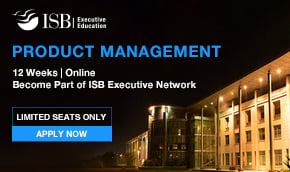Top Mechatronics Interview Questions and Answers

Mechatronics is a multidisciplinary field that lies at the intersection of mechanical, electronic engineering, and computer services. It is gaining popularity in India, especially among engineers inclined toward mechanical and electrical engineering.
While building a mechatronics career sounds interesting, it is hard to break into the field without prior preparation.
The first step is creating a job-specific resume and preparing for the interview. You can refer to online samples of mechatronics professionals’ resumes and make yours accordingly.
Meanwhile, the crucial part of discussing interview preparation is answering the questions correctly. Though it is understandable that you cannot prepare for all the questions in advance, you can certainly prepare for specific questions and tilt the interview in your favour.
Below, we have listed six commonly asked questions in a mechatronics interview and have provided answers for them.
Common Mechatronic Interview Questions and Answers
Question 1: Tell Us a Little About Yourself
Most interviewers ask this question to understand the candidate better. It helps them identify if you can fit into the organisation and execute the required roles and responsibilities effectively.
Step 1: Revisit your past experiences – successes, failures, or situations that made you
Evaluating your career choices will help you understand your strengths and weaknesses. You can use the STAR Method or SWOT Analysis to identify your strengths and weaknesses.
Step 2: Compare your previous job position and the one you are applying for
Work backward by summarising your current work experience, roles and responsibilities, job position, and analysing how they have helped you become a better professional. You can compare your previous job position to the one you are applying for. It will help you frame an answer that will highlight your skills and make the interviewer understand if you are the right candidate for their company.
Step 3: Find examples and instances to support your claim
Suppose you mention that you are a team worker and it’s your biggest strength. Herein, giving appropriate examples and instances to support the claim is important as it will make your interviewer believe in you.
Following the above steps will help you frame an interesting and impressive answer.
Question 2: What is Mechatronics, and How Do You Keep Up with Advancement in the Field?
An interviewer would ask this question to analyse your theoretical knowledge. So, while answering the first part of the question, you can add the following points to enhance it and create a lasting first impression:
- The simplest definition of mechatronics is that it combines mechanics and electronics.
- Mechatronics is used in several applications of robotics, artificial intelligence, and machine learning to streamline the design and production process.
- Mechatronics facilitates creating innovative and intelligent systems.
As a mechatronics professional, it is essential to adapt to the changes in the fast-paced industry. I’m eager to learn new things, which makes me intrigued by advancements in different industries, and keeps me updated about them.
Do you know why interviewers ask about how you adapt to changes? Employers ask this question because they want to see if you can handle the pressure of a challenging work environment and quickly adapt to the changes.
As some industries are fast-paced, you need to be competitive and flexible to tackle challenging situations effectively and efficiently.
Question 3: About Which Concepts Must an Aspiring Mechatronics Professional Have Complete Knowledge?
With this question, the interviewer wants to understand your capabilities as a mechatronics professional. Therefore, while answering, try to include these points:
- Background on how mechatronics systems work
- Knowledge of system components like sensors, actuators, etc.
- Modern electronics
- CNC machines
- MC and PLC
These are some of the commonly used terminologies in the field, and all mechatronics professionals must clearly understand them.
Here’s how you can frame your answer:
I believe mechatronic professionals should have a vast knowledge of different tools and processes. Therefore, it is imperative to have a deep understanding of how other mechatronics models function. In addition to that, aspirants must be well-versed with the most-used applications in Mechatronics. It helps in reducing errors and enhancing efficiency.
Question 4: Which Part of The Job Do You Love More – The Electronic or Mechanical, and Why?
In an interview, the employer asks questions about candidates’ preferences, strengths, and weaknesses to analyse their unique personality traits and understand if they can be a perfect fit for the open position and add value to the company.
Therefore, while answering this question, be clear about why you prefer electronic or mechanical engineering.
Question 5: How Would You Deal with a Situation Where Your Co-Worker Assumes That Their Machine’s Design is Better Than Yours?
Business organisations are looking for candidates who are team players. Individuals who can work as a team to achieve a common goal.
Therefore, with this question, the interviewer is trying to understand whether you are a team player. So, the answer you provide should highlight that you are a team player, thrive in a group, and are willing to understand other people’s perspectives.
Question 6: Why Should We Hire You?
This is one of the most common questions that interviewers ask every candidate. It might seem easy to answer this, but it is a make-or-break question that can either make you stand out or lead to rejection.
Here are four ways in which you can find an appropriate answer to this question:
Use the STAR interview technique
STAR interview technique is a systematic way to find answers to some complex interview questions.
It stands for Situation, Task, Action, and Result. The technique helps identify the situation, understand the task, and formulate an answer.
Use SWOT analysis to identify your strength and weaknesses
SWOT stands for Strengths, Weaknesses, Opportunities, and Threats. It is used across different business organisations to understand their unique selling proposition (USP).
Here are four reasons why you must conduct a SWOT analysis before an interview:
- Identify potential threats
- Maximise your strengths
- Minimise your weaknesses
- Take advantage of the opportunity
Online certifications or diploma courses
Professionals or freshers often take up different courses to upskill or reskill. Talking about such courses in the interview will demonstrate your zeal to learn new things and be up to date about the latest advancements in your field. Additionally, it will also increase your chances of clearing the interview round.
Four Innovative Ways to Answer Interview Questions
Here are four innovative ways to help exude confidence while answering interview questions.
Share facts and data to make your answers attractive
Facts, data, and statistics make your answer look impressive. Below, we have listed two statements; see which one sounds better to you.
A: “I was one of the most popular salespersons in the company.”
B: “I’m one of the top five salespeople in my team. Also, I’m on the pace to hit 200% of the annual sales goal for my position.”
The first statement (A) seems to be a generic sentence and doesn’t give any information. Meanwhile, the second statement (B) appears more specific and in-depth.
Pro-tip: To frame this answer, you can review your past performances and results.
Be brief and concise
You wouldn’t want to bore the interviewer with long answers. Therefore, try to keep your answer short and brief consciously. Cover the essential details and highlight your capabilities.
Make it about them, not you
Most candidates think that they should talk just about themselves in an interview. However, an interview is a discussion that requires active participation from both the parties – interviewer and interviewee.
Therefore, if you put yourself in their shoes and formulate answers accordingly, there are high chances that you will secure a job.
For example, while describing your skills and work experience, don’t just concentrate on boasting about your current work culture and ethics. Instead, show the interviewer that you are keen on learning new skills and honing the current ones to ensure optimum performance.
Talk about the future
Many interview questions are going to be about your past: past experiences, past successes, past failures, and more. However, talking about your plans will help the interviewer understand your career objectives and analyse if you can adapt to changes, learn new skills, and put in extra effort to increase efficiency.
So, when you talk about the skills and knowledge you possess, you should also talk about the future and how you will upskill yourself. One sure-fire way of upskilling yourself is to undertake industry required skills-based courses.




